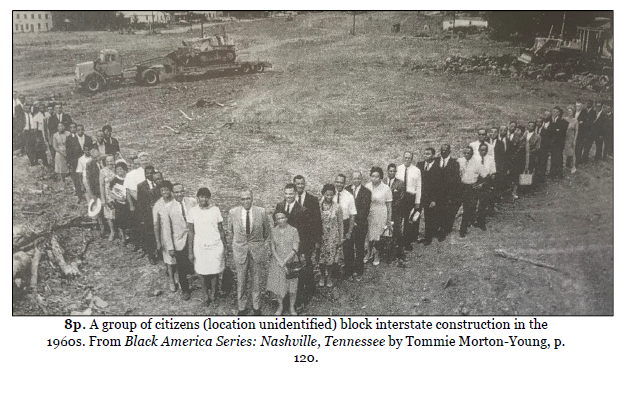The following is an excerpt of information shared with our UGL Volunteers that aims to educate our UGL Volunteers and their communities on the tenets of environmental justice, putting the spotlight on the issues that directly impact vulnerable communities—specifically focusing on access, impact, and involvement. This information was compiled by our Sustainable Households Manager, Karissa Hampton. To learn more about the UGL Volunteers, click here.
We think of environmental justice as an attempt to address and correct the disproportionate effects placed on marginalized communities who have been impacted first, worst, and longest by environmental burdens. It’s not about reshuffling the impact to different groups but rather working alongside communities to build systems that don’t create burdens in the first place.
Did You Know?
- Access
- Not all Nashville neighborhoods have equal access to essential resources like healthy food options, clean water, clean air, and green spaces. Some of us in our shared community, like individuals with disabilities, women and children, racial and ethnic minorities, and low-income neighbors, face challenges in getting these resources, impacting our daily lives and creating disparities in our city. (Source)
- Impact
- The imbalance of resources throughout Nashville has consequences far beyond inconvenience. Communities facing these shortages experience worse health outcomes, economic burdens, and overall well-being challenges. The location of polluting industries and landfills creates unhealthy air and water quality, the prevalence of mold worsens respiratory issues, and urban heat islands intensify physical and mental health complications. Our low-income and unhoused community is being impacted first and worst. (Source)
- Involvement
- The landfill placed in Bordeaux, a primarily Black community in Nashville, is an example of environmental injustice. Environmental injustices can be seen in placing landfills, factories, asphalt, and highways in more vulnerable communities–falling in line with Nashville’s historically redlined neighborhoods. Unfortunately, the affected communities are left out of or brought in too late to important planning discussions, leading to policies and decisions that don’t fully meet their needs, harming their community and perpetuating inequalities. (Source)
Actionable Steps You Can Take
- Help with Access
- Raise awareness:
- Spread awareness about environmental justice issues among friends, family, and neighbors.
- Encourage conversations about collective responsibility for addressing environmental disparities.
- Raise awareness:
-
- Support local initiatives:
- Back grassroots initiatives in Nashville that are addressing environmental justice.
- Volunteer time or contribute resources to support projects like community gardens, sustainable practices, or clean energy initiatives.
- Support local initiatives:
- Lessen the Impact
- Promote sustainable practices:
- Incorporate sustainable habits into daily life, such as reducing waste that will end up in landfills or opting for walking or carpooling to lessen the amount of vehicle emissions from the highways into our affected communities.
- Promote sustainable practices:
-
- Practice inclusivity:
- Promote inclusivity within your community and workplace, embracing diversity and recognizing the link between environmental, social, and racial justice.
- Practice inclusivity:
- Get Involved
- Attend community workshops:
- Participate in local workshops and events focused on environmental justice.
- Gain insights, share experiences, and collaborate on solutions with fellow residents.
- Attend community workshops:
-
- Vote with sustainability in mind:
- Choose candidates that prioritize environmental justice and sustainable policies.
- Look for leaders committed to clean energy, equitable practices, and community well-being.
- Vote with sustainability in mind:
-
- Stay informed:
- Keep up-to-date on local environmental issues, especially those affecting vulnerable communities.
- Follow reputable news sources, attend community meetings, and engage in discussions to understand neighborhood challenges.
- Stay informed:
Keep Learning
Let’s continue to learn, share, and discuss key resources to stay informed on Nashville’s environmental justice initiatives. Together, we can collectively work towards a Nashville that prioritizes every resident, regardless of background or circumstance, to thrive in a healthy and equitable environment.
- Discover more about environmental justice
- Learn more about the Nashville Environmental Justice Initiative
- Report local issues with HubNashville
For access to more sustainability education and resources, join the UGL Volunteers!
Karissa Hampton serves as the Sustainable Households Manager with Urban Green Lab. She leads the Households division in strategically teaching Nashville families and individuals to find simple, sustainable solutions within their own homes. Karissa also helps with our new UGL Volunteers program and Community Engagement as a resource to bring together a “green team” of diverse volunteers and residents.
